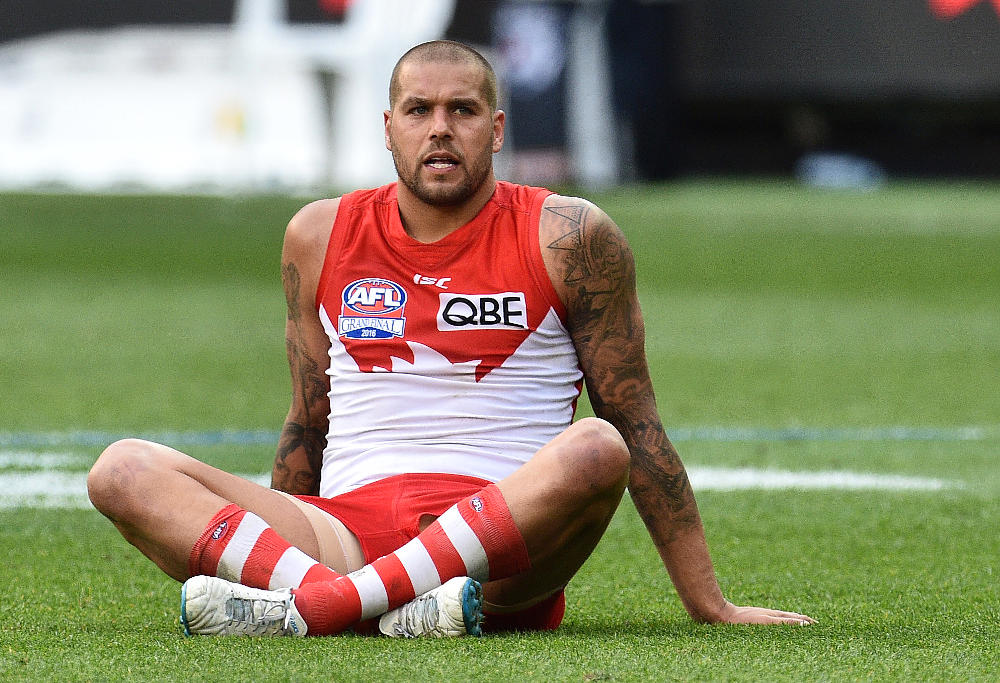The data says Brisbane are a flag contender - but the eye test tells a completely different story
There’s a slight disconnect between the data, the record and the eye test for the Brisbane Lions to start season 2024. This week, Champion…

It’s been a week since the Bulldogs astonished the footy world by winning their club’s second premiership, in which forward Tom Boyd played arguably his breakout game.
In that week, there have been dozens of articles written, comments made and discussions had about Boyd’s finals series and grand final performance. Most acknowledged Boyd’s performance and gave him the plaudits he rightly deserves.
However, reading those pieces, several continually repeated sentiments have jumped out at me.
“Tom Boyd, million dollar man”.
“Tom Boyd, the six-million dollar recruit”.
“Tom Boyd has earnt his pay packet today”.
“By winning a premiership, Tom Boyd has justified his lengthy and expensive contract’.
The story of how Boyd ended up in last Saturday’s victorious Bulldogs team has entered into footy folklore. The young, talented forward who was drafted by GWS with pick 1 in the 2013 draft, plays nine underwhelming games in his first season, then leaves the club at year’s end.
He was approached by the Bulldogs and signed a multi-million dollar, six-year deal. Since then, Boyd has had no shortage of detractors who have criticised his performances, despite the fact that Boyd’s role as a key forward and change-up ruck man is one of the hardest to play consistently, and that the players who play there take time to develop physically.
However, most of the criticism has not been solely about his performance, but rather about his performance in relation to the length and value of his contract. The sentiments outlined above – particularly the last one – seem to pervade every piece written about Boyd.
I’ve read very few pieces which discuss Boyd’s performance without also comparing and valuing this in tandem with his contract. Whenever Boyd’s name is mentioned in a piece, it’s rare that the words ‘six-million dollar’ or ‘high priced recruit’ aren’t linked with it, as if Boyd’s performance and his contract are unavoidably and inextricably linked.

The prevailing view among both the footy public and commentators is that a player being paid well ‘owes’ his club something; that their recruitment is deemed a failure unless they deliver the ultimate success for their team.
Players on large contracts are scrutinised more heavily than their lesser paid counterparts, and more is expected of them.
Last Saturday’s match was striking for the fact that it featured another big-name, ‘big money’ recruit whose performance in that match, and indeed his overall career, have been discussed hand-in-hand with his contract. Buddy Franklin, one of the so-called ‘Bondi Billionaires’ alongside teammate Kurt Tippett, came to the Swans from Hawthorn on a highly controversial nine-year, $9 million deal.
Since Sydney recruited Franklin, the club hasn’t won a premiership, going down to the Hawks by 60 points in 2014, and the Bulldogs in this year’s instalment. After Saturday’s second failed attempt in their past two outings, commentators and the football public have criticised Franklin and the Swans. Most have focused on the fact that despite Franklin’s excellent season, standing as one of the game’s greats, and stellar career, his recruitment has been a failure as it has failed to net the Swans a premiership.
There are several issues with this argument, not least of all that players don’t choose the contracts put in front of them. They take what they can get, and what a club is prepared to offer them, and it’s not their fault if a club values them highly enough to offer them a multi-million dollar deal.
A secondary issue to this is that clubs will value players based on the club’s current needs and situation. When the Bulldogs recruited Boyd, the club was at rock bottom, and needed a key forward to improve both their on-field fortunes and supporter morale off field.
Recruiting Boyd was not sold as a panacea to all the club’s woes, but it certainly gave supporters hope that their club was headed in the right direction. The way that the Bulldogs’ morale and supporter base has grown in the past two years shows that Boyd’s recruitment was valuable.
Likewise, with GWS entering the competition, Sydney saw the need to secure their place in the Sydney sporting landscape, and turned to arguably the game’s best player.
Such talk of worth versus contract devalues the other players in the side. Every player is recruited because a team believes that player can help them win a premiership; every player is recruited to play a role, and to perform to the best of their abilities, no matter what their contract.
Internally, the Bulldogs would be telling Boyd that he is an important player for them, but also emphasise that he is but one member of a team.
They would give him a role with clear guidelines, none of which would include ‘win us a premiership because you’re our highest paid player’. Clubs have an intrinsically different idea of ‘value’ than the footy public.
Boyd and Franklin were recruited with the knowledge that they could improve their team and drive them towards their goals, but with no expectation that they alone would deliver their club a premiership. Expectations on them would be no different to those on their lesser paid teammates – give your best effort and play your role for the team.
Of course, AFL is first and foremost a business and clubs want a return on investment from the players who they spend thousands of hours and dollars developing. However, valuing a player solely on the size of their contract doesn’t take into account all the other ways in which they bring value to a team. Players like Franklin provide invaluable experience and guidance to their fellow teammates, not to mention the publicity and growth in supporter base that Franklin has brought to one of the AFL’s most challenging markets.
Indeed, outside of the sporting world, employee contracts and ‘value’ or expectations are rarely linked. Many jobs use pay scales that pay the same wage to employees judged to be at a certain level, regardless of whether they may be high performing or contributing the bare minimum.
Such jobs usually use a range of factors, including age, experience or specialist skills or knowledge, to judge what each individual should be expected to contribute. I’d argue that football should be no different.
Judging highly-paid players on their performance in one game a year also disregards the role they played in helping their team get to the grand final in the first place. Franklin had an excellent season, finishing well up the Coleman Medal tally for the league’s most prolific goal scorer. Indeed, it could be argued that he has had his best season since his phenomenal year in 2008.
For Boyd’s part, he was a key contributor to the Bulldog’s triumph, stepping up in the absence of injured teammates, and keeping his cool in pressure situations. Without either player, both teams would have been much worse off, but neither are the be all and end all of their team’s result last Saturday.
Sydney didn’t lose the grand final because of Franklin – while he didn’t play his best game, neither did most of his teammates. Similarly, while Boyd played a great match, his efforts alone did not win the Bulldogs the match. It was a collective team effort that won the day.
Most frequently, the argument that has been bandied around by the footy public is that paying players like Franklin and Boyd massive salaries negatively affects a club’s ability to retain other players. So far, there hasn’t been much evidence of this.
Sydney losing ruckman Shane Mumford to GWS after Franklin’s recruitment was as much about lack of opportunity and positional squeeze as it was about money.
As it stands, no player has publicly left Sydney because the club has been unable to pay them a high enough salary. Midfielder Tom Mitchell is currently weighing up his options after supposed contract differences, but again, this could come down as much to how Mitchell assesses his financial worth compared to the club than to how much the club can afford to pay him.
In the Dogs’ case, when they recruited Boyd they were paying well below the salary cap, and so were able to front-end a large deal for him.
Ultimately, a player is worth what a club assesses they’re worth, which can take into account off-field factors as well as their ‘expected’ performance. It’s disappointing that the footy public is unable to write about Boyd or Franklin without mentioning the size of their contracts and the expectations that come with that.
When we look back in ten years and analyse whether bringing both players to their respective clubs was ‘worth it’, I can only hope that they’re judged on their entire career and what they contributed both on and off-field, rather than assessing their net worth against their contract.